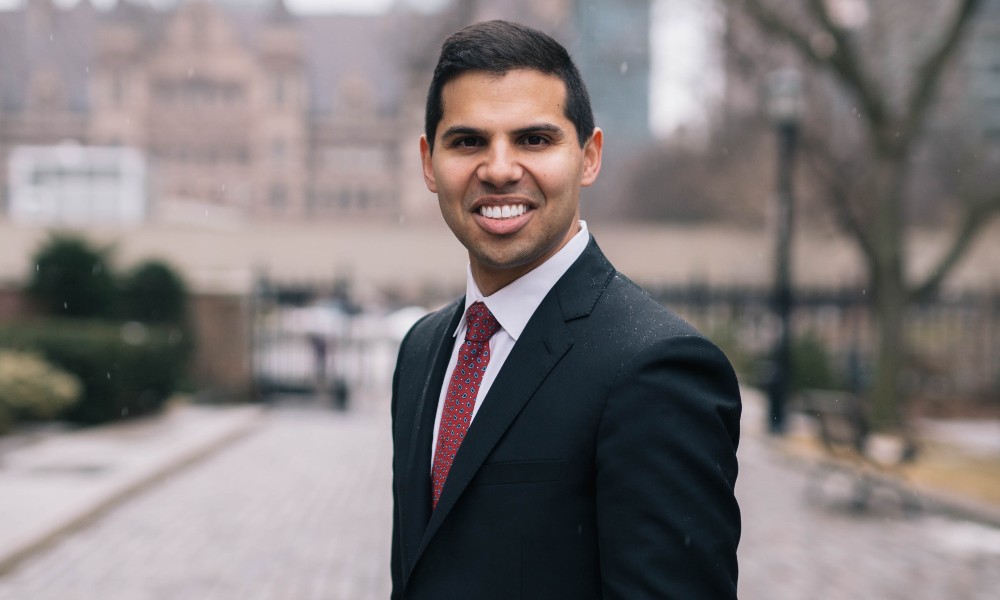
When are the rights and obligations of members of a voluntary association contractual?

The Court of Appeal has found that a church’s constitution and bylaws amount to a contract with members, overturning a Superior Court ruling that found five expelled members of the Ethiopian Orthodox Tewahedo Church of Canada had no legal basis on which to contest their expulsion.
“This case is significant for congregants and members of religious institutions across the province, as well as board members and religious leaders of synagogues, churches, mosques and other places of worship,” says David Elmaleh, a litigator at RE-LAW LLP, who was not involved in the case.
“This decision should empower congregants and members of religious institutions to hold their respective institutions accountable and it should also give the leadership in these organizations pause to ensure their rules, regulations, bylaws and constitution are up-to-date,” he says.
In Aga v. Ethiopian Orthodox Tewahedo Church of Canada, 2020 ONCA 10, the church asked five church-members to participate in a committee investigating a suspected heretical movement within the church. The committee made recommendations, but they were ignored by the church, leading to a dispute that resulted in the five members’ expulsion.
Taking the dispute to court, the members said the church did not communicate the allegations against them and gave them no opportunity to respond. They sued under the Corporations Act, claiming the church failed to follow its own internal procedures and breached their natural right to justice and s. 2(a) Charter right to freedom of conscience and religion.
The church argued the appellants have “no freestanding right to procedural fairness” because, as a voluntary association, those who join do not acquire civil or property rights in doing so. The church also argued its decisions to expel are not subject to judicial review. They brought a motion for summary judgment, which Superior Court Justice Sandra Nishikawa granted, finding that with no underlying contract there was no justiciable issue to be tried.
Justices Julie Thorburn, David Paciocco and Katherine van Rensburg heard the appeal.
The courts have jurisdiction over how a voluntary association adheres to its own procedures if there is an underlying legal right to be adjudicated. When an organization has a constitution and by-laws, “they constitute a contract setting out the rights and obligations of members,” under which the basic requirements of procedural fairness, including “notice, opportunity to make representations and an unbiased tribunal,” said the panel of appeal court judges.
The 1977 constitution is in Amharic and a translated version was not produced until two months after the expulsion of the appellants. The revised constitution “is not a direct translation,” but the relevant provisions exist in both versions.
The constitution has rules for disciplining and expelling members, which include “advice and education; consultation and cannon and temporary suspension with warning before the cancellation of membership.” In summary judgment, the moving party bears the evidentiary burden of showing there is “no genuine issue requiring trial,” the court said, adding that as the church did not file the necessary evidence, it was not clear whether the church followed the provisions guiding discipline against members.
“These are genuine issues to be determined,” the Court of Appeal decision states.
The Court of Appeal set aside the lower court’s ruling and returned the matter to the Superior Court.
“Our clients are extremely pleased with the decision and it provides much needed clarity to the Supreme Court's reasoning in [Highwood Congregation of Jehovah’s Witnesses (Judicial Committee) v. Wall],” says Anthony Colangelo, a lawyer at Lento PC in Toronto, who acted for the appellants.
“We are very appreciative of the work done by the Court of Appeal and the time taken to review the facts of this case, including the extensive review undertaken by the court of the Church's Constitution and by-laws,” says Colangelo.